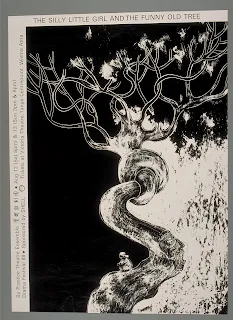This year marks the 10th anniversary of the passing of Kuo Pao Kun, an iconic figure of the theater scene in Singapore. Several of his most salient plays are enjoying a revival at local theaters and the National Museum of Singapore is presenting an exhibition bringing together a selection of intimate photographs, manuscripts, letters, theatrical costumes and interviews with his peers and co-workers, all of which underline Kuo’s instrumental role in developing the local arts scene.
In 1965, after graduating from the National Institute of Dramatic Arts in Australia, Kuo returned to Singapore and with his beautiful young wife Goh Lay Kuan established the Singapore Performing Arts School, which encourages bilingual theater – the school was renamed The Theater Practice in the late ‘90s and is now headed by his daughter Kuo Jian Hong.
Kuo used his time in detention productively, learning the Malay language and reading extensively. Upon his release in 1980, he went on to write some of his best known plays like “The Coffin is too Big for the Hole” (1985) - about a man battling the bureaucracy while trying to bury his grandfather, whose oversized coffin simply could not fit into the standard plot prescribed by the authorities; “Mama Looking for Her Cat” (1988), which highlights the gradual disappearance of language diversity in Singapore; and the “Descendants of the Eunuch Admiral” (1995) , which deals with the issue of cultural identity and displacement.Kuo’s early works including translating classics such as Bertolt Brecht’s “Caucasian Chalk Circle” (1967). The iconic dramatist was also an activist and he spent four years and seven months in jail in the late ‘70s, detained under the Internal Security Act for alleged communist activities, and “A Life of Practice - Kuo Pao Kun” does not shy away from presenting this more controversial side of his life.
In 1990, he also founded The Substation, a small multicultural and multidisciplinary arts center with a wide array of programs that encourage discussion, exploration and innovation. The Substation created the first black box theater in Singapore which propelled the local ‘Little Theater Movement’. This movement was based on the Independent Theater Movemen twhich advocated non-conventional and non-commercial theatrical performances and organizations and was itself inspired by Théâtre Libre founded by André Antoine in 1887 in Paris.
“A Life Of Practice - Kuo Pao Kun” runs at the National Museum of Singapore until Feb 24, 2012.
As published in ARTINFO.com

+The+Coffin+is+Too+Big+for+the+Hole+(Chinese)+presented+at+A+Night+of+Comedy,+1985.jpg)
+Poster+of+Descendants+for+the+Eunuch+Admiral+(Chinese),+1995.jpg)
+Poster+of+The+Silly+Little+Girl+and+the+Funny+Old+Tree,+1989.jpg)